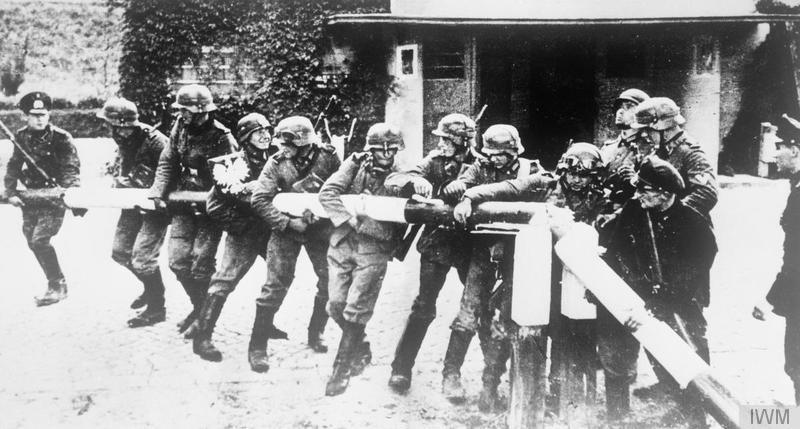By newsroom
Copyright philenews

1176 – Battle of Myriokephalon: On September 17, 1176, the Byzantine Empire’s army under Emperor Manuel I was ambushed and defeated by the Seljuk Turks at the Battle of Myriokephalon in Anatolia. This loss marked the end of Byzantine attempts to reclaim central Anatolia from Turkish control, halting the empire’s eastward reconquest ambitions.
1631 – Battle of Breitenfeld: On September 17, 1631, during the Thirty Years’ War, Protestant forces led by King Gustavus Adolphus of Sweden, allied with Saxony, decisively defeated the Catholic League’s army under Count Tilly at Breitenfeld (near Leipzig, Germany). This major victory – the first for the Protestant side in the war – established Sweden as a great European power and proved the effectiveness of Gustavus Adolphus’s modern tactics over the previously dominant Catholic armies.
1683 – van Leeuwenhoek’s “Animalcules” Letter: Dutch microscopist Antonie van Leeuwenhoek wrote to Britain’s Royal Society on September 17, 1683, describing tiny “animalcules” he observed under his handmade microscope. In this letter – the first to detail bacteria – van Leeuwenhoek reported seeing a “great company of living animalcules” in plaque from his teeth, marking the first known scientific description of microorganisms (bacteria) and a milestone in microbiology.
1787 – U.S. Constitution Signed: On September 17, 1787, delegates at the Constitutional Convention in Philadelphia signed the Constitution of the United States. This document established the framework of the U.S. federal government and is one of the earliest written national constitutions. The signing marked the successful conclusion of months of deliberation, creating a model of republican governance that would influence many other nations.
1862 – Battle of Antietam: Fought on September 17, 1862, near Sharpsburg, Maryland, the Battle of Antietam (also known as Sharpsburg) was the bloodiest single-day battle in American history, with over 3,600 soldiers killed (and over 26,000 total casualties). Union General George B. McClellan halted Confederate General Robert E. Lee’s first invasion of the North. Though tactically inconclusive, Antietam’s strategic outcome gave President Lincoln the confidence to issue the Emancipation Proclamation, a turning point in the American Civil War.
1894 – Battle of the Yalu River: On September 17, 1894, the largest naval battle of the First Sino-Japanese War was fought at the mouth of the Yalu River (Yellow Sea). The Imperial Japanese Navy met and defeated the Qing Chinese Beiyang Fleet in a decisive engagement. This Japanese victory secured command of the sea, paving the way for a successful invasion of mainland Asia and signaling Japan’s emergence as a major regional power in East Asia.
1939 – Soviet Invasion of Poland: On September 17, 1939, in the early days of World War II, the Soviet Red Army invaded Poland from the east in accordance with a secret pact with Nazi Germany. Joining the German attack that had begun on September 1, the Soviets overwhelmed Poland’s eastern defenses, and the Polish government fled into exile. This partition of Poland by the USSR and Germany in 1939 effectively erased the Polish state for the next six years and expanded World War II across Eastern Europe.
1944 – Operation Market Garden Begins: On September 17, 1944, the Allies launched Operation Market Garden, one of the largest airborne operations in history. Thousands of Allied paratroopers dropped behind German lines in the Netherlands while ground forces advanced northward in an attempt to secure key bridges over the Rhine. The bold plan aimed to hasten the end of World War II by breaking into Germany’s industrial heartland, but despite initial successes, logistical delays and stiff German resistance ultimately thwarted the operation’s objectives.
1978 – Camp David Accords Signed: After 12 days of U.S.-brokered talks at Camp David, Egyptian President Anwar el-Sadat and Israeli Prime Minister Menachem Begin signed the Camp David Accords on September 17, 1978. Witnessed by U.S. President Jimmy Carter at the White House, these accords laid the groundwork for the Egypt–Israel Peace Treaty (signed the next year in 1979) and a broader framework for pursuing Middle East peace. It was the first peace agreement between Israel and an Arab state, fundamentally reshaping geopolitics in the region.
1980 – Solidarity Founded in Poland: On September 17, 1980, striking Polish workers at the Lenin Shipyard in Gdańsk, led by electrician Lech Wałęsa, formed Solidarity (Solidarność) – the first independent labor union in the Soviet-bloc Eastern Europe not controlled by a communist party. Within a year the union grew to 10 million members, becoming a powerful social and political movement. Solidarity’s emergence challenged Poland’s communist regime and sparked a broader push for freedom in Eastern Europe, ultimately contributing to the fall of communist governments by the end of the decade.



